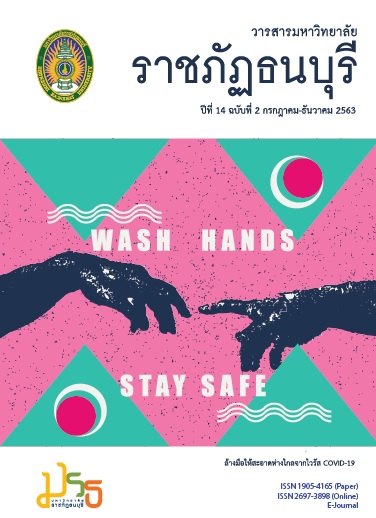หลักความรับผิดชอบที่เพิ่มขึ้นของผู้ผลิตกับ ร่างกฎหมายสหภาพยุโรปว่าด้วยพลาสติกใช้ครั้งเดียวทิ้ง
คำสำคัญ:
หลักความรับผิดชอบที่เพิ่มขึ้นของผู้ผลิต, พลาสติกใช้ครั้งเดียวทิ้ง, ร่างกฎหมายสหภาพยุโรปบทคัดย่อ
หลักความรับผิดชอบที่เพิ่มขึ้นของผู้ผลิต ได้แก่ หลักที่นำมาใช้กับนโยบายการจัดการขยะเพื่อ กำหนดให้ผู้ผลิตมีความรับผิดชอบในผลิตภัณฑ์ที่ผู้ผลิตได้ผลิตขึ้นมา โดยขยายความรับผิดชอบของผู้ผลิต ไปจนถึงช่วงที่ผู้บริโภคได้ทิ้งผลิตภัณฑ์ดังกล่าวให้กลายมาเป็นขยะภายหลังจากบริโภคเสร็จสิ้นแล้ว หลักความรับผิดชอบที่เพิ่มขึ้นของผู้ผลิตอยู่ภายใต้ฐานแนวคิดที่ว่ารัฐบาลท้องถิ่นหรือหน่วยงานจัดการขยะ ของท้องถิ่นพึงผลักภาระต้นทุนทางสิ่งแวดล้อมไปให้กับผู้ผลิตผลิตภัณฑ์ หลักนี้ได้ถูกนำเอามาใช้เพื่อให้บรรลุวัตถุประสงค์เฉพาะด้านสิ่งแวดล้อมและสร้างบรรทัดฐานในการจัดการขยะพลาสติกใช้ครั้งเดียวทิ้งแบบทันสมัย ทดแทนการจัดการขยะพลาสติกใช้ครั้งเดียวทิ้งแบบดั้งเดิม บทความฉบับนี้มีวัตถุประสงค์ที่จะมุ่งอภิปรายร่างกฎหมายสหภาพยุโรปว่าด้วยการจัดการขยะพลาสติกใช้ครั้งเดียวทิ้ง ซึ่งร่างกฎหมายฉบับนี้ได้บรรจุหลักความรับผิดชอบที่เพิ่มขึ้นของผู้ผลิตที่นำไปสู่การสร้างความรับผิดชอบให้ผู้ผลิตในการบำบัดและกำจัดผลิตภัณฑ์ที่ผ่านการบริโภคแล้วและขยายความรับผิดชอบของผู้ผลิตให้ครอบคลุมทั้งวงจรชีวิต ผลิตภัณฑ์พลาสติกใช้ครั้งเดียวทิ้งผ่านการดำเนินรูปแบบธุรกิจรูปแบบใหม่
Downloads
เอกสารอ้างอิง
Bengtsson, M., Hotta, Y., Hayashi, S. & Akenji, L. (2010). Policy Tools for Sustainable Materials Management: Applications in Asia (IGES Discussion paper SCP 2010-001). Kanagawa: Institute for Global Environmental Strategies.
Copello de Souza, Larissa. (2019). Unfolding the Single-Use Plastics Directive: Policy Briefing. Brussels: Zero Waste Europe.
Cyclos GmbH. (2019). Legal Framework Study of Extended Producer Responsibility (EPR). Osnabrück: Cyclos GmbH.
European Commission. (2018). A European Strategy for Plastics in a Circular Economy. Brussels: European Commission.
European Commission. (2018). A Strong and Sustainable European Plastics Industry. Brussels: European Commission.
European Commission. (2018). A Plastics Strategy to Protect Europe's Citizens and the Environment. Brussels: European Commission.
European Commission. (2018). Commission Staff Working Document Impact Assessment Reducing Marine Litter: Action on Single use Plastics and Fishing Gear. Brussels: European Commission.
European Commission. (2018). EU Leading Global Action - a European Strategy for Plastics in a Circular Economy. Brussels: European Commission.
European Commission. (2018). Proposal for a Directive of the European Parliament and of the Council on the Reduction of the Impact of Certain Plastic Products on the Environment. Brussels: European Commission.
European Commission. (2018). Turning Today's Challenges Into Opportunities - a European Strategy for Plastics in a Circular Economy. Brussels: European Commission.
European Commission. (2019). Commission Staff Working Document Sustainable Products in a Circular Economy - Towards an EU Product Policy Framework Contributing to the Circular Economy. Brussels: European Commission.
European Environment Agency. (2019). Preventing Plastic Waste in Europe (EEA Report No 02/2019). Luxembourg: Publications Office of the European Union
Hilton, M., Sherrington, C., McCarthy, A. & Börkey, P. (2019). Extended Producer Responsibility (EPR) and the Impact of Online Sales–Environment Working Paper N° 142. Paris: Organisation for Economic Co-operation and Development.
Hogg, D., Sherrington, C., Papineschi, J., Hilton, M., Massie, A. & Jones, P. (2020). Study to Support Preparation of the Commission’s Guidance for Extended Producer Responsibility Schemes. Bristol: Eunomia Research & Consulting Ltd.
Mederake, L. & Knoblauch, D. (2019). Shaping EU Plastic Policies: The Role of Public Health vs. Environmental Arguments. International Journal of Environmental Research and Public Health. 16 (20) :3928.
Organisation for Economic Co-operation and Development. (2016). Extended Producer Responsibility: Guidance for Efficient Waste Management. Paris: Organisation for Economic Co-operation and Development.
Organisation for Economic Co-operation and Development. (2016). Extended Producer Responsibility-Updated Guidance for Efficient Waste Management. Paris: Organisation for Economic Co-operation and Development.
Rethink Plastic Alliance. (2019). Moving Away from Single-Use: Guide for National Decision Makers to Implement the Single-Use Plastics Directive. Brussels: Rethink Plastic alliance,
United Nations Environment Programme. (2008). Single-Use Plastics: A Roadmap for Sustainability. Nairobi: United Nations Environment Programme.
Watkins, E., Gionfra, S., Schweitzer, J. P., Pantzar, M., Janssens, C. & Brink, P. T. (2017). EPR in the EU Plastics Strategy and the Circular Economy: A Focus on Plastic Packaging. Brussels: Institute for European Environmental Policy.
World Wide Fund for Nature. (2020). Plastic Packaging in Southeast Asia and China. Gland: World Wide Fund for Nature.
ดาวน์โหลด
เผยแพร่แล้ว
รูปแบบการอ้างอิง
ฉบับ
ประเภทบทความ
สัญญาอนุญาต
ลิขสิทธิ์ (c) 2021 มหาวิทยาลัยราชภัฏธนบุรี

อนุญาตภายใต้เงื่อนไข Creative Commons Attribution-NonCommercial-NoDerivatives 4.0 International License.
บทความที่ได้รับการตีพิมพ์เป็นลิขสิทธิ์ของมหาวิทยาลัยราชภัฏธนบุรี
ข้อความที่ปรากฏในบทความแต่ละเรื่องในวารสารวิชาการเล่มนี้เป็นความคิดเห็นส่วนตัวของผู้เขียนแต่ละท่านไม่เกี่ยวข้องกับมหาวิทยาลัยราชภัฏธนบุรีและบุคลากรท่านอื่น ๆ ในมหาวิทยาลัยฯ แต่อย่างใด ความรับผิดชอบองค์ประกอบทั้งหมดของบทความแต่ละเรื่องเป็นของผู้เขียนแต่ละท่าน หากมีความผิดพลาดใด ๆ ผู้เขียนแต่ละท่านจะรับผิดชอบบทความของตนเองแต่ผู้เดียว







